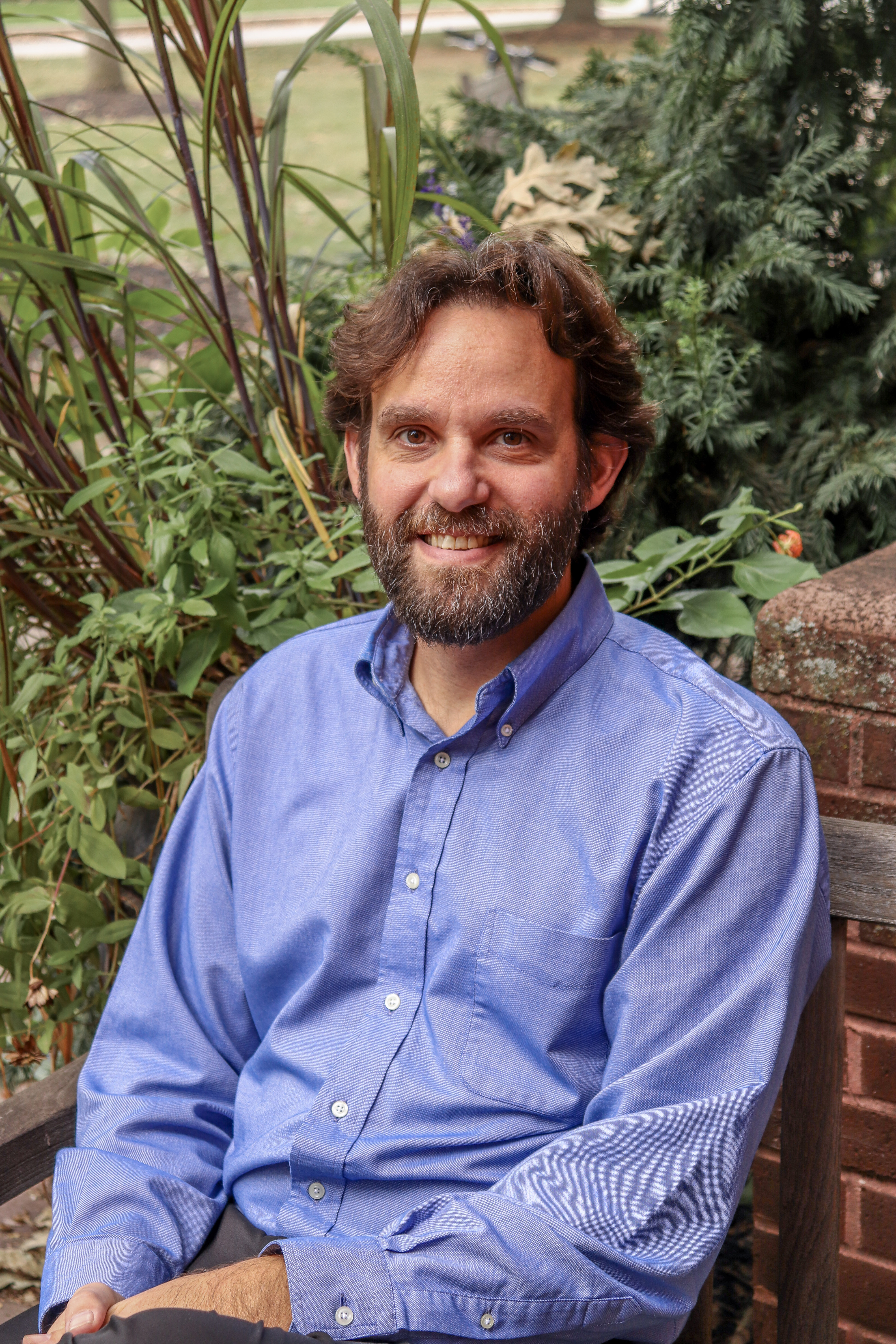Tenured Professor Spotlight: Professor Oechler
Abby Hallagan, Contributing Writer

Professor Christopher Oechler (Photo Maggie Meehan/ The Gettysburgian)
Professor Christopher Oechler is an associate professor of Spanish at Gettysburg College. Courses he teaches include Elementary and Intermediate Spanish as well as Golden Age Spanish Literature and Culture.
Oechler’s interest in Spanish culture grew as the language became more prevalent within his circle of family and friends. He embraced the Spanish language as a practical, interesting and beautiful way to communicate with the people around him.
Oechler chose to double major in Spanish and International Relations for his undergraduate work at Penn State University. He then used his Spanish language skills by working with adult learners who were seeking to earn their GEDs in English as a Second Language. He subsequently enrolled in NYU’s master’s program in Madrid, Spain, where he earned his graduate degree in Spanish literature. His experience overseas cemented his decision to embark upon a career in teaching Spanish. He then earned his Ph.D. in Spanish literature from Penn State University.
Oechler is a proponent of a discussion-based classroom. It is critical in his language classes because students are building their proficiency in Spanish language skills.
He has also developed courses that spark dialogue and debate around Spanish literary works, some of which date back 400-500 years ago. He encourages students to read these early modern texts and analyze how some of the issues they talk about still resonate today. For example, one of his classes focuses on female authors from Spain’s Golden Age. He compares these authors’ writings to the more current MeToo movement.
Oechler is energized by active classes where the students are collaboratively digging deep into the material, asking questions and making connections.
Oechler is currently working on research of his own. Specifically, he is writing an article about Mocedades. This term, found in early modern Spanish literature, refers to “boyhood deeds.” He is researching plays from this time period that revolve around this concept of Mocedades. He is analyzing how much leeway young men were given during their formative years during this time period.
Additionally, Oechler is working on a digital humanities project. Before the COVID-19 pandemic, he worked with a couple of teams of students to make a 3D virtual reality model of an old Spanish theater from the early modern time period. This project is now being revisited and Oechler hopes to perfect this 3D model and publish it.
Since it is National Hispanic Heritage Month, Oechler has some suggestions on how we can all honor the cultures and contributions of Hispanic and Latino Americans in our region. He is excited about the annual “Salsa on the Square” event in Gettysburg on Sept. 30. He encourages Gettysburgians to partake in this day and enjoy the food, music, and dancing of Latin America.
He emphasizes that this is also the perfect time to become more engaged in service work with local Spanish speaking communities. The Center for Public Service (CPS) offers numerous ways to get involved, such as through El Centro and tutoring English as a second language. These are amazing opportunities to step outside of our campus, learn what is happening in the broader world and build stronger ties with the Spanish speaking communities of Gettysburg.
Oechler, also known by the stage name “Chris Carl,” also sings and plays cover songs and his own original material around town. If students are lucky enough to catch one of his gigs, there is a strong chance that they’ll bump into him and his wife at Mr. G’s Ice Cream shop. If you do, he will probably say you are with him so he can receive extra punches on his punch card to get his 12th scoop free!
Oechler’s words of wisdom for Gettysburg students relate to his upcoming class on Don Quixote, by Miguel de Vervantes, which will be offered next semester. He says this famous novel is a story about failure. He is inspired by this story because the protagonist, Don Quixote, never seems to do anything right. But despite all of his setbacks, he never gives up trying.
Oechler connects this story to all of us.“Failure is a necessary part of learning, and failure is a necessary part of living,” Oechler said.
